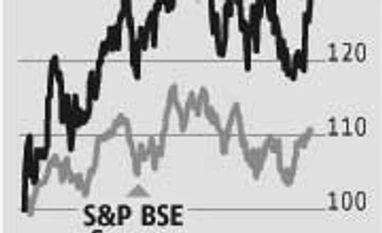The buzz that Tata Chemicals is planning to sell its fertiliser business has cheered the street. The stock gained more than five per cent immediately after the news and another two per cent thereafter.
The company, however, has neither been confirmed nor denied the news. In its filing to the exchanges, Tata Chemicals said it routinely assesses the performance of its businesses and the relevant market conditions, including evaluating growth and restructuring opportunities. And, in the event of any development that requires disclosure under regulatory requirements, it will make the same.
The answer to the question whether Tata Chemicals could exit the business lies in the above statement itself.
Ever since Cyrus Mistry took over the baton, the company has enhanced focus on expanding into high-growth areas. Therefore, an exit from the business would be more likely driven by the government’s policies or relatively lower returns it earns. Fertiliser, especially urea, remains a subsidised commodity business where the government controls the price.
ALSO READ: Tata Chemicals reports Rs 238 cr profit in Q3 FY2014-15
Second, for Tata Chemicals, half of the revenues are contributed by the chemical segment, while agri inputs contribute 12 per cent to topline. The remaining 38 per cent comes from fertilisers. But, at Ebit (earnings before interest, tax) level, chemicals contributed 70 per cent and only 15 per cent came from fertiliser business during FY15. The Ebit margins for chemicals segment and agri input segment stood at 17.1 per cent and 12.8 per cent, respectively, while for fertiliser was just five per cent, clearly indicating its low profitability.
Another possible reason why an exit would benefit is the debt. Importantly, the company is also focusing more on the consumer business that it plans to scale up from Rs 1,500 crore in revenues in FY15 to Rs 5,000 crore in five years. The branded business under i-Shakti is growing well as the management continues to focus on growth by expanding its reach to 100,000 retailers from 55,000 currently and by introducing new products, say analysts at Emkay Global.
Nevertheless, whether the fertilisers business is sold or not, analysts remain positive on. Analysts at Emkay have revised upwards their FY16 adjusted profit estimates for Tata Chemicals by four per cent and have a price target of Rs 635. Other analysts, too, have target prices of Rs 500 plus, which in turn indicates an upside of over 11%.
The company, however, has neither been confirmed nor denied the news. In its filing to the exchanges, Tata Chemicals said it routinely assesses the performance of its businesses and the relevant market conditions, including evaluating growth and restructuring opportunities. And, in the event of any development that requires disclosure under regulatory requirements, it will make the same.
The answer to the question whether Tata Chemicals could exit the business lies in the above statement itself.
Ever since Cyrus Mistry took over the baton, the company has enhanced focus on expanding into high-growth areas. Therefore, an exit from the business would be more likely driven by the government’s policies or relatively lower returns it earns. Fertiliser, especially urea, remains a subsidised commodity business where the government controls the price.
ALSO READ: Tata Chemicals reports Rs 238 cr profit in Q3 FY2014-15
Second, for Tata Chemicals, half of the revenues are contributed by the chemical segment, while agri inputs contribute 12 per cent to topline. The remaining 38 per cent comes from fertilisers. But, at Ebit (earnings before interest, tax) level, chemicals contributed 70 per cent and only 15 per cent came from fertiliser business during FY15. The Ebit margins for chemicals segment and agri input segment stood at 17.1 per cent and 12.8 per cent, respectively, while for fertiliser was just five per cent, clearly indicating its low profitability.
Another possible reason why an exit would benefit is the debt. Importantly, the company is also focusing more on the consumer business that it plans to scale up from Rs 1,500 crore in revenues in FY15 to Rs 5,000 crore in five years. The branded business under i-Shakti is growing well as the management continues to focus on growth by expanding its reach to 100,000 retailers from 55,000 currently and by introducing new products, say analysts at Emkay Global.
Nevertheless, whether the fertilisers business is sold or not, analysts remain positive on. Analysts at Emkay have revised upwards their FY16 adjusted profit estimates for Tata Chemicals by four per cent and have a price target of Rs 635. Other analysts, too, have target prices of Rs 500 plus, which in turn indicates an upside of over 11%.
)